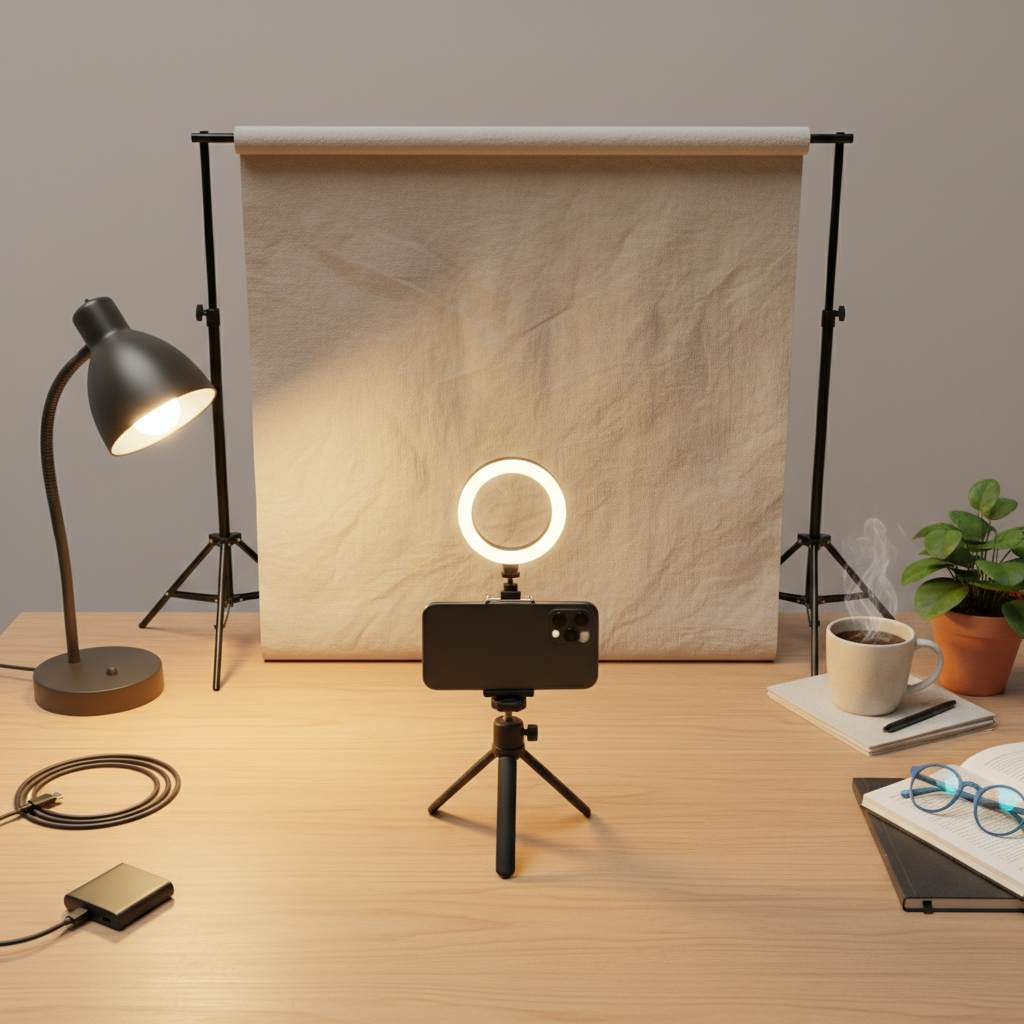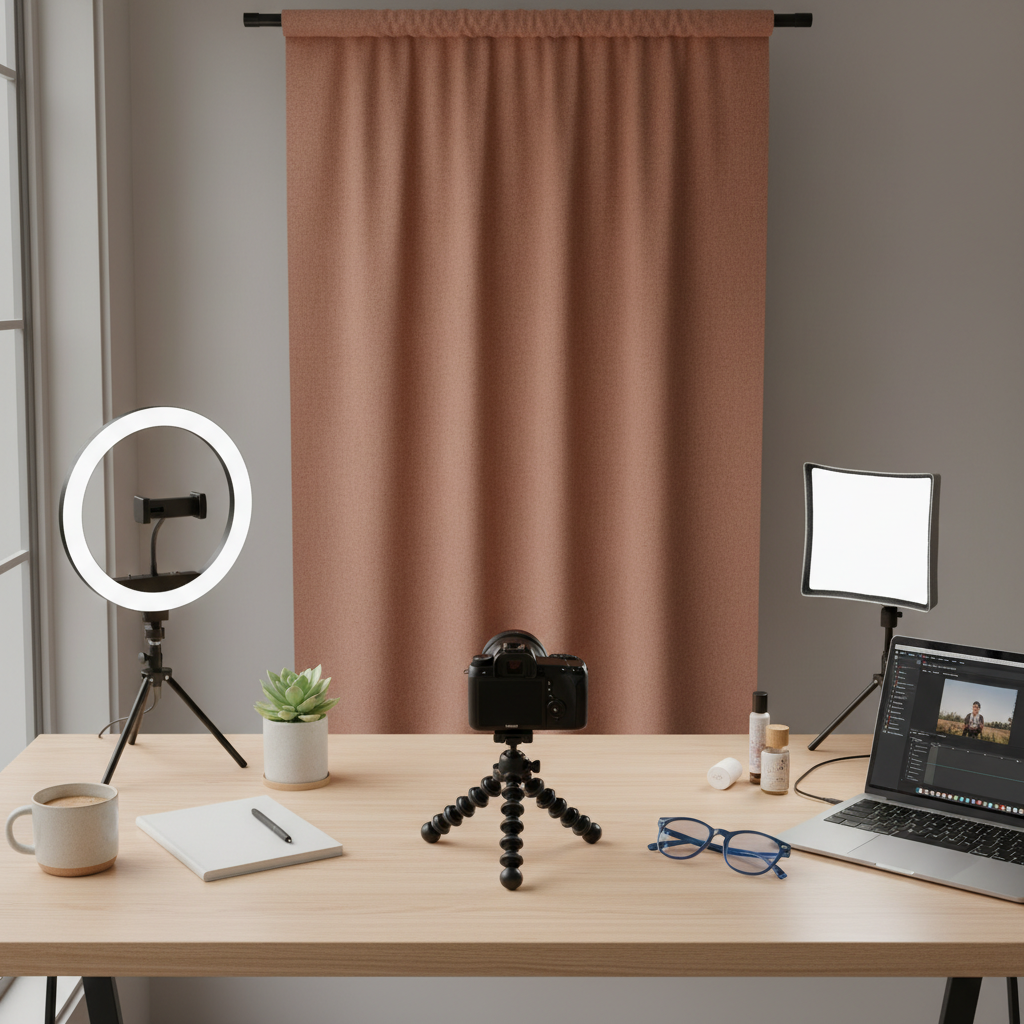How to Do UGC for Beginners and Start Creating Content
Learn how to start creating effective User-Generated Content by finding your niche, building a portfolio, mastering formats, and attracting brands.

How to Do UGC: A Beginner’s Guide to Creating Effective User-Generated Content
If you’re wondering how to do UGC and turn it into a profitable skill, you’re in the right place. User-Generated Content has exploded in popularity as brands seek authentic, relatable ways to reach customers. This guide walks you through finding your niche, building a portfolio, mastering content formats, and scaling your UGC into a creative business — all while delivering content that engages and converts.
---
Understanding What UGC Is and Why Brands Value It
User-Generated Content (UGC) refers to any form of content created by consumers or independent creators that promotes a brand’s product or service. Unlike traditional ads, UGC often feels more authentic and trustworthy because it comes from a “real person” rather than the brand itself. This is exactly why brands love UGC — it drives higher engagement, improves conversions, and builds valuable social proof.
When learning how to do UGC, understanding its significance is the first step. UGC can be:
- Product review videos
- Lifestyle photos featuring a product
- Story-based posts showing product benefits
- Tutorials or “unboxing” content
According to studies, UGC delivers a 28% higher engagement rate compared to brand-created content, making it a crucial tool in modern marketing strategies.

---
Identifying Profitable Niches and Target Audiences
To become a successful UGC creator, focus on niches that are in high demand and align with your personal interests or expertise. Popular niches for UGC include:
- Beauty & Skincare — tutorials, product demos, before/after results
- Fitness & Wellness — workout demos, motivational reels
- Tech & Gadgets — unboxings, quick tips, reviews
- Food & Beverage — recipes, taste tests, plating ideas
- Travel & Lifestyle — destination highlights, packing tips
Pro Tip: Research target audiences using tools like Google Trends, TikTok’s Creative Center, or Instagram hashtags to understand what’s trending and what people actively engage with.
---
Researching High-Performing UGC Examples in Your Niche
Before creating your own content, study what’s already working. Look at top-performing UGC posts in your niche and analyze:
- Video hooks and intros
- Tone and style (formal vs casual)
- Use of captions and subtitles
- Lighting and camera angles
- Placement of the call-to-action (CTA)
Create a swipe file of successful posts to use as creative references. This helps accelerate your learning curve and ensures your content is aligned with market demand.

---
Setting Up Your UGC Creator Portfolio
Your UGC portfolio is your business card. It should showcase your ability to create engaging, brand-relevant content. Build it with diversity — include examples of:
- Short-form vertical videos (TikTok, Instagram Reels)
- Long-form tutorials (YouTube)
- High-quality product photos
- Lifestyle shots showing natural product use
Add testimonials or screenshots of positive feedback from brands you’ve worked with. Use platforms like Canva, Notion, or a personal website to present your portfolio in a polished, professional way.
---
Choosing the Right Equipment and Lighting
Professional-looking UGC requires the right tools, but you don’t need to spend a fortune.
Basic Essentials:
- Smartphone with a good camera (modern iPhone or Android)
- Tripod for stable shots
- Ring light or softbox for consistent lighting
- Lavalier mic for clear audio
Pro Upgrade:
- DSLR or mirrorless camera for high-end visuals
- Dedicated LED panel lighting
- Gimbal stabilizer for smooth movement shots
Lighting plays a huge role in quality. Use natural light when possible, and supplement with artificial lighting when necessary.
---
Mastering Short-Form and Long-Form UGC Formats
Different platforms demand different video lengths and strategies:
| Format | Platforms | Best Practices |
|---|---|---|
| Short-form (15–60 sec) | TikTok, Instagram Reels, YouTube Shorts | Hook in first 3 seconds, fast cuts, trending sounds |
| Medium format (1–3 min) | Instagram, Facebook | Story-driven, clear CTA |
| Long-form (5+ min) | YouTube | In-depth reviews, tutorials, professional editing |
When starting out, short-form content is easier to produce, test, and refine quickly.
---
Storytelling Techniques for Authentic UGC
Storytelling can transform simple product shots into compelling narratives. Try these approaches:
- Problem–Solution
- Highlight the viewer’s pain point, then show how the product fixes it.
- Transformation Story
- Show a clear before-and-after using the product.
- Behind-the-Scenes
- Share genuine experiences and unfiltered moments.
Example narrative flow for a skincare product:
[Hook] “My skin used to break out every week…”
[Problem] Quick close-up of skin concerns.
[Solution] Introducing the product with a smile.
[Result] Show healthy, glowing skin after using it.
[CTA] “Try it and thank me later!”---
Finding Brands and Agencies
Breaking into the UGC industry requires proactive outreach:
- Online Marketplaces: Fiverr, Upwork, Trend.io
- Influencer Marketing Platforms: AspireIQ, Collabstr, Insense
- Cold Outreach: Email or DM brands with your portfolio
Always personalize your pitch and clearly explain how your style can help the brand connect with its audience.

---
Negotiating Rates and Deliverables
Know your worth when offers start coming in. Factors affecting rates include:
- Number of deliverables (videos/photos)
- Usage rights (organic social vs paid ads)
- Exclusivity clauses (restricting work with competitors)
- Deadlines and turnaround times
Beginners often start at $50–$200 per short-form UGC video, with rates increasing alongside skill and demand.
---
Tracking UGC Performance Metrics
To win repeat business, track and showcase the impact of your work:
- Views & Engagement Rate
- Click-Through Rate (CTR)
- Conversions
- Watch Time
Performance data makes for strong case studies in your portfolio.
---
Common Mistakes to Avoid
Steer clear of these pitfalls:
- Ignoring the brand’s creative brief
- Overusing filters or effects that obscure the product
- Poor lighting or shaky footage
- Missing deadlines
- Skipping clear agreements on usage rights
---
Scaling UGC into a Business
Once you’ve built a client base, you can transform how to do UGC into a sustainable business:
- Batch content production for efficiency
- Hire editors or assistants
- Create retainer agreements for steady income
- Offer package deals combining photos, videos, and editing
With consistency and creativity, you can grow from one-off projects to running your own UGC brand studio.
---
Summary
Learning how to do UGC is a valuable skill that can open doors to brand partnerships, steady income, and creative fulfillment. By choosing profitable niches, building a strong portfolio, mastering content formats, and tracking measurable results, you can position yourself as a trusted creator. Start small, focus on quality, and scale strategically — and you’ll be ready to thrive in the world of User-Generated Content.
CTA: Ready to take your UGC skills to the next level? Begin your first project today and showcase your authentic storytelling to the world.




